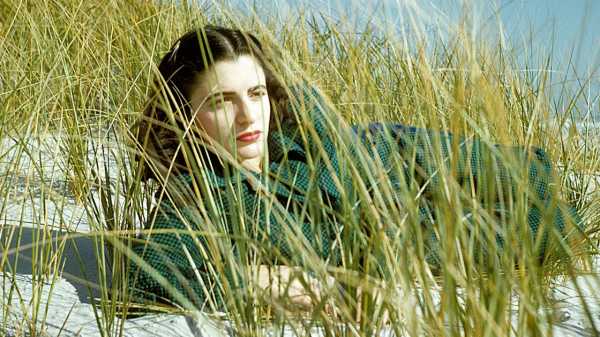
Each week, Richard Brody picks a classic film, a modern film, an independent film, a foreign film, and a documentary for online viewing.
“Mrs. Parker and the Vicious Circle”
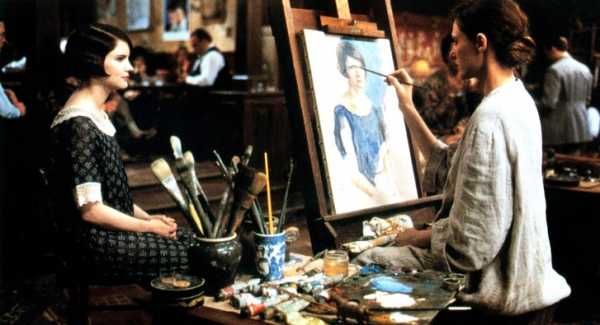
Photograph by Fine Line Features / Everett
With the disappointing “Godard Mon Amour” currently playing in theatres, it’s worth considering other films that approach real-life romances with more imagination, empathy, and humanity. Recreating a stylish past requires a sense of style, which is why “Mrs. Parker and the Vicious Circle,” Alan Rudolph’s romantic bio-pic, from 1994, is an exemplary and exhilarating work of historical cinema. (It’s also screening at the Quad Cinema on April 28th and May 4th, in a retrospective of Rudolph’s films.) Rudolph, who wrote the script with the journalist Randy Sue Coburn, anchors the action in bouts of lacerating wit exchanged like blows at the celebrated Algonquin round table, and extracts a full measure of the pain that the verbal combat of brilliant talkers and frustrated writers both conceals and inflicts. The central drama is the longtime romance between Parker (Jennifer Jason Leigh) and Robert Benchley (Campbell Scott), which was platonic but intense, complex, and central to the lives of both artists. He called her Mrs. Parker; she called him Mr. Benchley, or, alternately, Fred; they admired each other, they confided in each other, they helped each other—except when Parker got him to take his first drink, of Prohibition-era rotgut, and set him on the path to alcoholism that resulted in his early death, from cirrhosis, in 1945. Rudolph films with a bittersweet blend of epigrammatic flamboyance and tautly constraining elegance, a flowing visual style that captures the fun-loving, self-destructive strivings of great creators whose most enduring creations turned out to be themselves, with one exception: the character of Harold Ross (played by Sam Robards), who’s seen at work creating The New Yorker, for which Parker wrote copiously.
“Mrs. Parker and the Vicious Circle” is streaming on Amazon.
“They Live by Night”
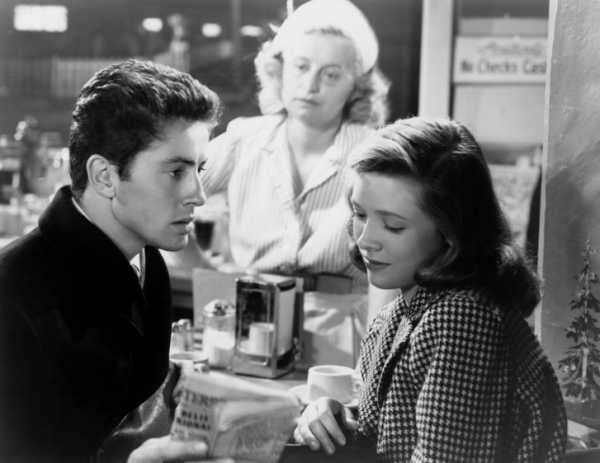
Photograph from Everett
The story of Bonnie and Clyde was transposed into the novel “Thieves Like Us,” by Edward Anderson, which was adapted by Nicholas Ray for his first feature, “They Live By Night,” from 1948. Ray pushes the tale’s criminal adventures into the background to focus on a melancholy yet rapturous tale of doomed romance. The eighteen-year-old Bowie (Farley Granger) is a twentysomething convict who was imprisoned at sixteen for a murder for which he was an unwitting accomplice. He is broken out of jail by a pair of hardened criminals, Chickamaw (Howard Da Silva) and T-Dub (Jay C. Flippen), who bring him in as the needed third man on bank robberies. But, when Bowie meets Chickamaw’s niece, Keechie (Cathy O’Donnell), at a hideout, they fall in love and go on the run. Bowie plans to abandon his life of crime; he hopes to clear his name and dreams of an honest and modest family life with Keechie, but his past keeps catching up with him. Ray films their ingenuous mutual passion with a wide-eyed pictorial ardor to match, but balances it with the societal obstacle course of deceptions and evasions, threats and terrors of which the couple’s life on the run is made. There’s also a poignant political dimension, centered on Bowie’s confidence—based on a tattered newspaper clipping that he keeps in his pocket—that the Supreme Court, having overturned another teen-ager’s life sentence as cruel and unusual punishment, would do the same for him. (This very week, in another such case, the Court shamefully refused to do as much once again.)
“They Live by Night” is streaming on FilmStruck.
“An Oversimplification of her Beauty”
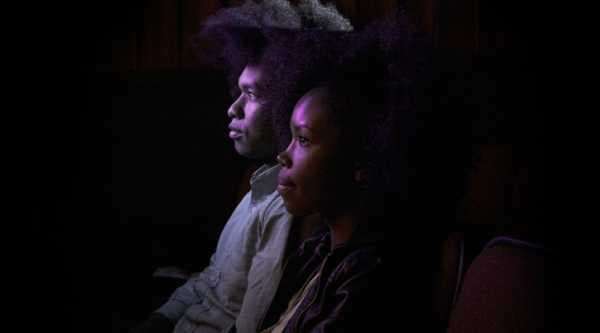
Photograph by Variance / Everett
Terence Nance’s self-reflexive romance “An Oversimplification of Her Beauty,” from 2012, is a comedic drama in the conditional tense. It’s built around a short film that Nance made in 2006, about his elusive romance with a woman named Namik Minter, who plays herself in it. Nance interrupts his own film with a voice-over that explains his premise: the interruption of his own short film with a new film, “An Oversimplification of Her Beauty,” in which he’ll develop, amplify, and analyze moments and elements from that short. The project is a labyrinthine joyride through Nance’s consciousness, which he unfolds through a collage-like blend of animation (in a wide range of styles), live-action footage, archival personal images, and overlapping and echoing commentaries—as well as a blend of fiction and nonfiction, of documentation and imagination, of memory and immediate experience. The intricate mosaic of his composition is all the more exhilarating for its freewheeling sense of spontaneous associations, which in reality were the work of his elaborately plotted, visionary design. That design conveys the ardent and tender romanticism, the enduring affection, and the self-questioning at the story’s heart, as in scenes in which Nance yields the screen to the work of Minter, who is herself a filmmaker.
“An Oversimplification of Her Beauty” is streaming on Vudu, Google Play, Amazon, and other services.
“Antoine and Colette”
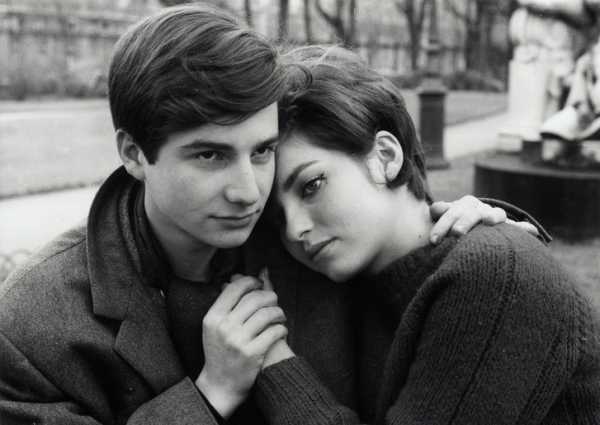
Photograph courtesy MK2 Films
François Truffaut, who died in 1984, was a master of transpositions. His first feature, “The 400 Blows,” from 1959, was set in its own time but was based mainly on events from Truffaut’s childhood during the Second World War and the German Occupation. For his short film “Antoine and Colette,” from 1962—the second film that Truffaut made about Antoine as embodied by Jean-Pierre Léaud—he transposed a strange romantic obsession from his own youth, in 1950, into later times as well, and transformed the cinephilic obsessions of his own adolescence into Antoine’s fixation on classical music. Antoine, who works in a record factory, goes to concerts at night; at one of them, he sees Colette (Marie-France Pisier) while sitting a few rows ahead of her, and makes her uneasy with his staring. Several concerts later, he summons the confidence to speak to her; they make a date and become friends (she’s a music student of about the same age), but Antoine’s interests are romantic and Colette keeps her distance. To push matters along, Antoine exchanges his tiny apartment for a tiny hotel room—across the street from the apartment where she lives with her family. All of these things happened to Truffaut in his pursuit of the real-life Liliane Litvin—as did many other incidents and details scattered throughout the film. What’s more, Truffaut, who was married at the time, fell in love with Pisier (who was seventeen; he was twenty-nine) and he was tempted to break up his marriage—a story on which he based his next film, “The Soft Skin,” from 1964.
“Antoine and Colette” is streaming on the Criterion Channel at FilmStruck.
“Phyllis and Harold”
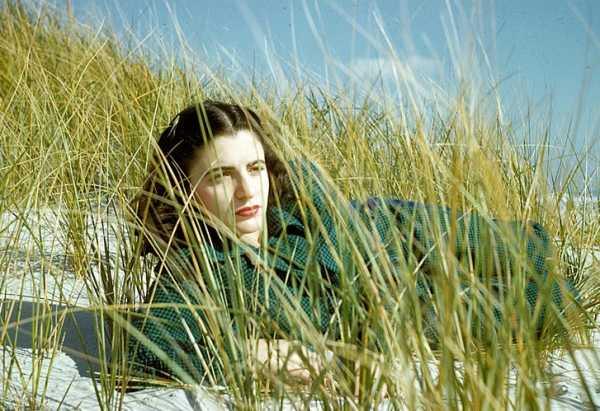
Photograph courtesy Cindy Kleine
In “Phyllis and Harold,” from 2008, Cindy Kleine looks behind the façade of suburban respectability to extract the pathos from her parents’ fifty-plus-year marriage—and from her own perspective as a witness and even as an accomplice. Growing up on the South Shore of Long Island, Cindy sensed that her parents, the New York-born children of Jewish immigrants from Eastern Europe, didn’t live in marital bliss. She presents her father, Harold, a dentist, as living in a comfortable obliviousness; her mother, Phyllis, however, lived in torment, and tells the filmmaker, on-camera, the cause: soon after her marriage, in the nineteen-forties, she had a five-year affair with a married man who, unlike Harold, was the love of her life. In joint interviews with her parents that preserve the shattering secrets, and separate ones that reveal them, as well as a generous and revelatory selection of home movies and stills (Harold was a camera buff), Kleine unfolds the price of a lifetime of secrecy and lies—and their effect on the children. (Her sister Ricky is one of the interview subjects, as is the children’s former nanny, Annie McCarter, who was a greater presence in the filmmaker’s childhood than was Phyllis.) The canny editing keeps two time tracks running in parallel—the long route of the couple’s entire lives and the short jaunt of the endgame of old age—to evoke a disturbed and tangled yet romantically exalted tale of love thwarted and savored.
“Phyllis and Harold” is streaming on Amazon Prime, YouTube, and other services.
Sourse: newyorker.com






